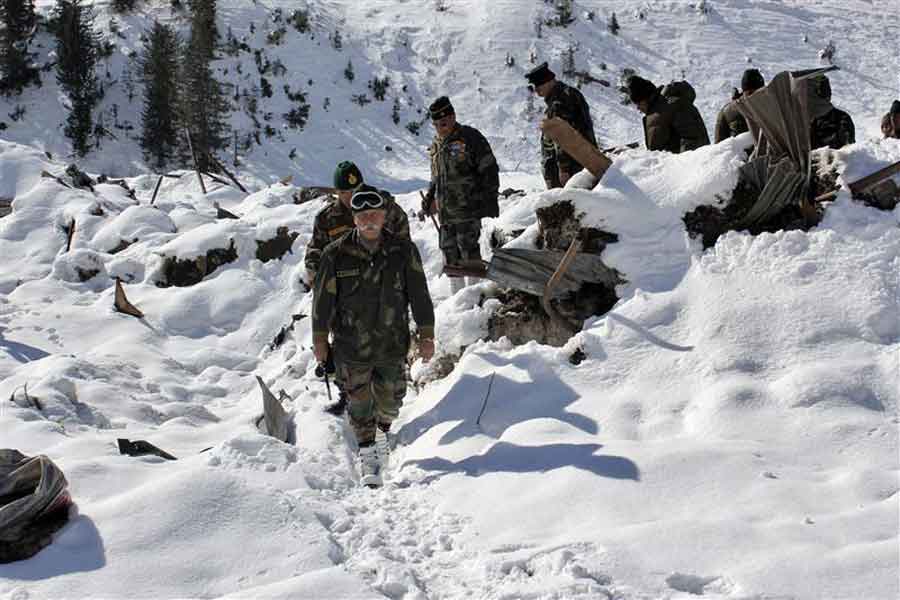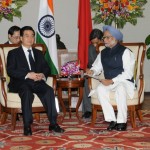Self- inflicted injury, by its very nature and motivation, is considered abhorrent within military circles and dealt with quite harshly, not just in our military but also by other militaries around the world, especially when it impacts ongoing operations or existing operational capabilities. While such opprobrium is understandable, there is a need to differentiate between the actions of an individual soldier and that of military commanders, whose decisions may lead to deleterious consequences in the future, whatever their immediate motivation for taking it. Invariably those in the latter category tend to get away under most circumstances though it is they who are responsible for causing more long term damage.
…on numerous occasions militants have been able to escape after being located by Security Forces because of intervention by the local populace…
One may recall that at the time of the elections to the Jammu and Kashmir Legislative Assembly, an incident occurred at Chattergam in the Kashmir Valley in which two teenagers were tragically killed by the Army. They died when the car they were in refused to halt at a vehicle check post established by an army unit, which engaged them and forced the car to stop. Subsequently, nine personnel of the unit involved were indicted and both the Army Commander of Northern Command and the Corps Commander in the Valley went on record to state that there had been a failure of command and the troops involved had overstepped their brief. Undoubtedly such a firm indictment must have been arrived at based on facts that were never placed in public domain. However, suspicions remained that the actions initiated by the commanders were more likely at the behest of Mr. Modi, who had just come into power and had made some adverse observations on the incident, despite investigations being in progress at that time.
Whatever be the truth of the matter, its impact has been felt ever since as the obvious lesson for the troops and junior commanders conducting operations was that they needed to err on the side of caution before initiating any action, something completely impractical in such circumstances where decisions are made within a flash based on instinct, experience and probability. We thus have the ludicrous situation today that on numerous occasions militants have been able to escape after being located by Security Forces because of intervention by the local populace, something that was quite unimaginable even at the height of the insurgency in the early and mid- Nineties. This state of events obviously adversely impacts how the existing situation in the region is viewed both domestically and internationally and can clearly be attributed to hesitation on the part of army personnel to act, lest they be blamed. Can reports of alleged inaction on the part of some army columns sent to deal with the recent Jat agitation in Haryana, made by the Commission of Inquiry looking into the matter, be mere coincidence?
The implications of the military leadership in being either deliberately unwilling or unable to stand up for its serving officers is bound to have grave repercussions in the future…
We have similarly seen the military hierarchy abrogate its responsibilities towards serving officers when they are accused of wrong doing by the Police without various provisions of the law protecting them being applied. We thus had senior officers of the Army being complicit in the alleged illegal detention by the Anti- Terror Squad of the Mumbai Police of Lt Col Purohit in the Malegaon case. If one were to go by what is available in the media presently, it is only a matter of time before the Court throws the case out against him, which should enable him to proceed against his detractors for wrongful confinement and alleged torture. One hopes that those who were complicit in this act from the Army too face accountability.
The Army’s actions are no less condemnable with regard to permitting local police in Mizoram too, in what can only be termed as wholly illegal, arrest Col Jasjit Singh and some personnel from his unit on charges of allegedly robbing gold smugglers. That the smugglers, who brought the charges against them after a lapse of four months, have themselves been allowed to roam free raises grave questions against the conduct of the Police as well as their credibility.
The implications of the military leadership in being either deliberately unwilling or unable to stand up for its serving officers is bound to have grave repercussions in the future as serving soldiers will have less reasons to trust their superiors. Will the political dispensation be happy at the prospect of having to deal with an Army in which soldiers will continuously look over their shoulders and be reluctant to act? It is therefore absolutely imperative that the Ministry of Defence put in public domain as to who in the military establishment faltered in following up on laid down procedures as laid down in the Army Act and Rules that govern them and as to the reasons for their unwillingness to act. Accountability will go a long way in changing mindsets.
…we must also take into account the fact that self- inflicted injuries seem to be the stock in trade of our politicians here, regardless of their ideological bent.
All of this is in stark contrast to the manner in which the military leadership of the Israeli Defence Forces reacted to what they termed “as a grave breach of I.D.F. values, conduct and standards of military operations.” In an incident two Palestinian men stabbed and wounded an Israeli soldier at a checkpoint near a Jewish settlement enclave in the West Bank city of Hebron, in what has become a near-daily occurrence over the past few months. The troops responded to the attack and shot the assailants, resulting in their deaths. It later emerged that one of the Palestinians was subsequently killed in cold blood by an Israeli soldier, as he lay wounded much after control of the situation had been re-established by the Security Forces.
Prime Minister Netanyahu, in contrast, made his support for the soldier’s actions quite evident by speaking to his father, given the on-going state of the Palestinian revolt. The military’s action against the errant soldier was supported by the Defence Minister, Moshe Yaalon, and former Chief of the IDF, who subsequently resigned in protest against the Prime Minister’s actions. As a matter of fact Mr. Yaalon had insisted on senior army officers’ right to “speak their mind” after Deputy IDF Chief, Major General Yair Golan, enraged Prime Minister Netanyahu by comparing contemporary Israeli society to Nazi Germany.
In our context all of this is purely academic since such moral uprightness or strength on the part of most in the military hierarchy is unthinkable. Moreover, we must also take into account the fact that self- inflicted injuries seem to be the stock in trade of our politicians here, regardless of their ideological bent. Apart from their penchant for foot in mouth disease, they have little difficulty in shooting themselves in the foot at every opportunity they get. Thus, to expect them to stop our military leadership from causing systemic damage to the military appears highly unlikely.






Author has a knack of highlighting issues, usually brushed under the carpet. It is a serious issue, something likely to affect counter insurgency ops in long run. If a soldier is not even sure that following SOPs laid down during ops may invite action against him if things go awry, despite his good intent then he may consider appropriate to avoid action, something that will adversely affect our cutting edge over the period. Army must not throw its officers and men to the wolves. Law is clear on the subject and all actions should only be as per Army Act. Violators should be tried by Court martial if required, and to this the Army or Assam Rifle must not abdicate their responsibility. Any deviation from this is fraught with danger and will affect the combat potential of Army as a whole.
Col Purohit is not the only instance, but recent arrest of Colonel Jasjit Singh in Mizoram have set bad precedents. Top military hierarchy is squarely to be blamed for it. Arrest by civil police of a serving member of the Armed Forces for an act done in the discharge of his official duties has very serious ramifications for the services. It will not be appropriate to compare with IDF, as our civil and Army hierarchy have different moral fibres and standards. Such actions will mean loss of faith and respect of rank and file in their senior officers. It is high time that top hierarchy become alive to its overall deleterious effect and pull up their socks..
I very much agree with what the Brig has opined here. The Officers have a tremendous sense of loyalty and integrity towards the organistaion. However the very same organization does not stand by these officers. Its common phenomena and a routine occurrence that the Army (brass/generals) try to find a scape goat for crucifixion and then brush the matter under the carpet. Sack the guy and the matter is over. For the Kargil fiasco, the Kargil Brigade Commander was made the fall guy for mud plastering. It was so simple. Handing over Col Purohit to the police in the Malegoan case was a big blunder committed by the Army. Somebody crossed all the lines of rules and regulations of the Armed Forces which are there in black and white to discard this officer to the wolves of the political system. There needs to be an inquiry instituted in the Army as to how and why the rules and regulations were violated and who is responsible. It should have never been allowed to happen. It’s a simple issue and that is that our top brass lacks “balls”. Pardon my adjectiveness – but there is nothing better to describe it. If you can’t stand by one of your own for the sake of justice then you are not worth calling a man – that’s what I am implying. It’s sad the way things are going and the rot is in the upper echelons of the service. It’s a wakeup call for the Generals. Stand by those Officers and Soldiers over whose shoulders you became Generals. Don’t shame the men you Commanded.
A very well put across article
The author is absolutely right. The Indian Army is out to destroy itself. The ethos, values and the motivation of the army has been achieved over the last 6 decades by professionally competent and dedicated no nonsense officers like Field Marshal Sam Manekshaw, General SK Sinha and the like. If we cannot build on it, we should at least not subdue it and make it a submissive, politically inclined Police force.
It is time the Army leadership realises what it is doing to the organisation